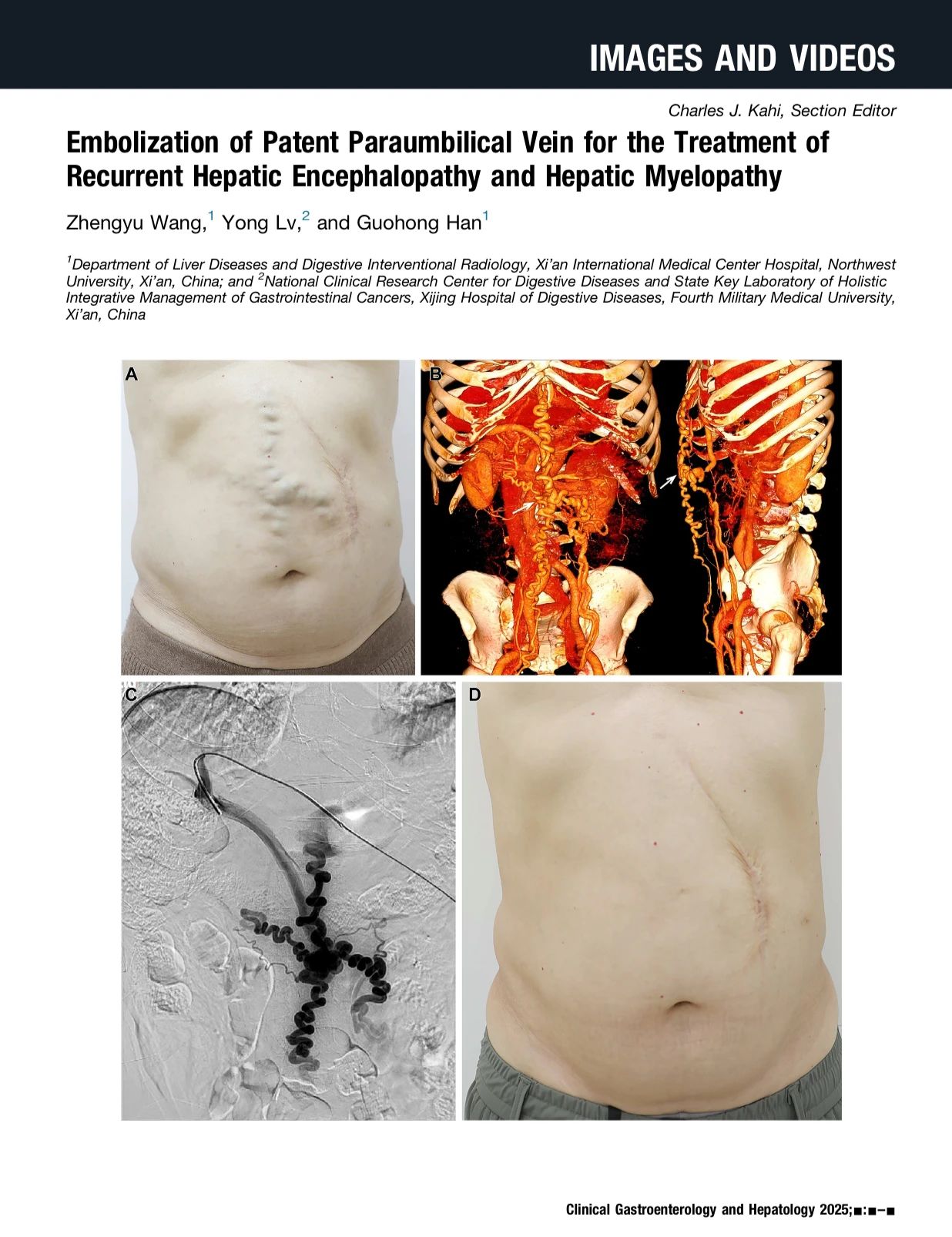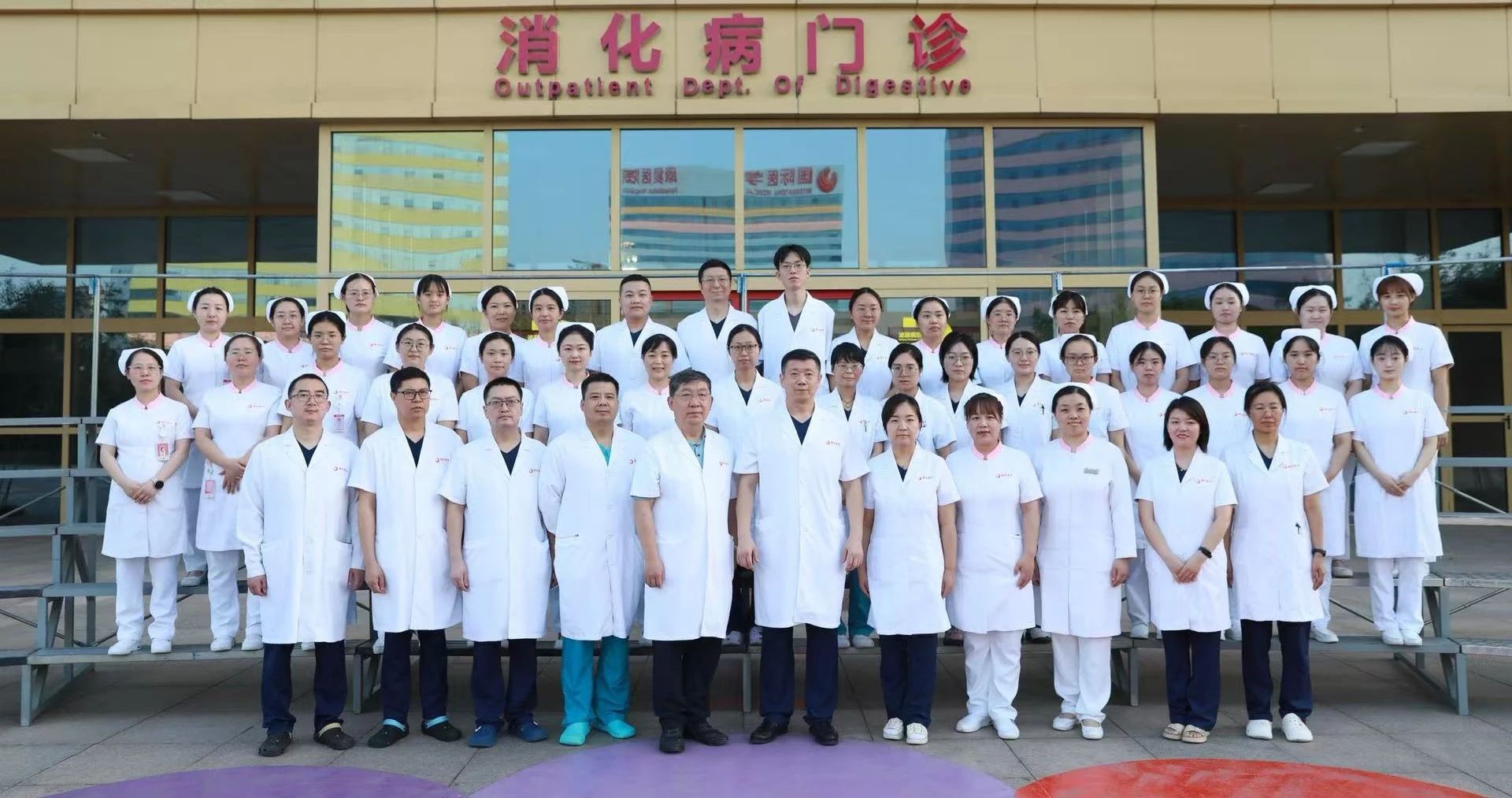Recently, the follow-up team led by Dean Han Guohong of the Digestive Disease Hospital at Xi'an International Medical Center Hospital published a paper titled "Embolization of patent paraumbilical vein for the treatment of recurrent hepatic encephalopathy and hepatic myelopathy" online in the official journal of the American Gastroenterological Association, Clinical Gastroenterology and Hepatology (IF: 11.6, JCR: Q1, first quartile of the Chinese Academy of Sciences). This marks that the innovative therapy of embolizing spontaneous portosystemic shunt (SPSS) for the treatment of recurrent hepatic encephalopathy and hepatic myelopathy has gained international authoritative recognition.

The treatment of hepatic encephalopathy and hepatic myelopathy has always been a challenge in clinical practice. Previously, interventional embolization of SPSS has been proven effective in improving the prognosis of refractory hepatic encephalopathy, but there is still a lack of research on relevant treatments for patients with hepatic myelopathy. This time, the follow-up team led by Dean Han Guo reported a successful treatment case: through SPSS interventional embolization therapy, the prognosis of a patient with recurrent hepatic encephalopathy complicated by hepatic myelopathy was significantly improved, supplementing the research content in this field.
This achievement reflects the strength of the nursing team in scientific research. Leveraging the advantage of clinical follow-up and relying on the experience accumulated from frontline work, the team collected key data during follow-up. By systematically analyzing previous studies and conducting research in combination with clinical practical needs, they employed scientifically rigorous methods to complete a series of tasks from data collection to paper writing, exploring new directions for the treatment of recurrent hepatic encephalopathy and hepatic myelopathy.
It is worth mentioning that this paper was published in an internationally authoritative journal with an impact factor of 11.6. The first author is Wang Zhengyu, the head nurse of the follow-up team led by Dean Han Guohong. This achievement breaks the inherent perception that nursing staff struggle to conduct high-level scientific research, demonstrating that nursing teams can also produce professional achievements on the international academic stage and contribute to the development of clinical treatment through scientific research.

Professor Hong's team in South Korea has been dedicated to the clinical and research work of interventional therapy for portal hypertension (including portal vein thrombosis and/or cavernous degeneration, variceal bleeding and ascites, Budd-Chiari syndrome, etc.) and combined interventional and targeted immunotherapy for hepatobiliary and pancreatic tumors for over 30 years. Since 2011, based on multiple research achievements related to portal hypertension and liver cancer, Professor Hong has published 165 SCI papers as the first or corresponding author in international authoritative journals such as Nat Rev Gastro Hepatol, Ann Oncol, Lancet Gastro Hepatol, Gastroenterology, J Hepatol, Gut, Radiology, Liver Cancer, and Hepatology. The highest impact factor (IF) of a single paper is 56.7. Among them, 13 papers have an IF greater than 20, 12 papers have an IF between 10 and 20, and 18 papers have an IF between 5 and 10 (5 papers were selected as ESI Highly Cited Papers, and 2 papers were ESI Hot Papers). These papers have been cited over 9,000 times, with an H-index of 49. Relevant achievements have been included in 17 international guidelines (2014-2024) from the American Association for the Study of Liver Diseases, the European Association for the Study of the Liver, and the British Society of Gastroenterology.